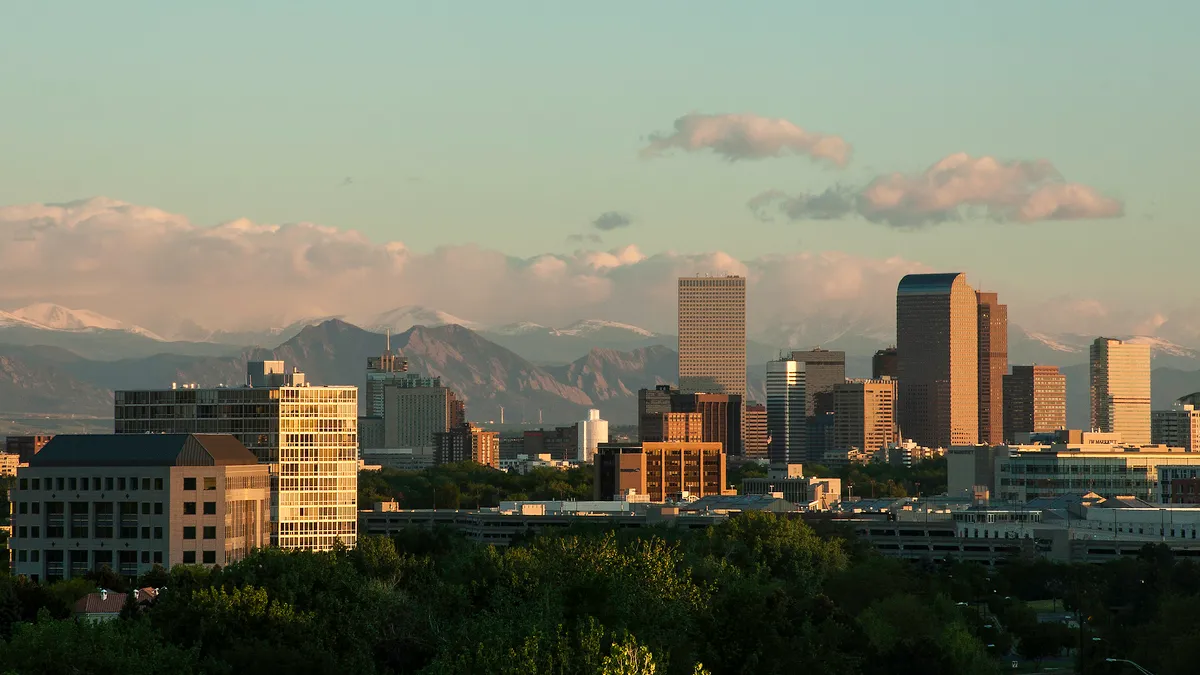Dive Brief:
- Research by investment management company JLL found that Denver is adding highly skilled workers to its labor force faster than any other city in the United States, including traditional tech hubs such as Boston and Seattle.
- According to estimates pulled from the U.S. Census Bureau, Denver had a 22.5% increase from 2012 to 2016 in adults over the age of 25 with a bachelor’s degree. Washington, DC came second with a 19.9% rise, with Philadelphia in third with 19.1%.
- Earlier this month, a group of 10 Colorado tech companies launched the Colorado Technology Recruiting Coalition, along with a new website dubbed Pivot to Colorado, designed to showcase tech opportunities in cities like Denver.
Dive Insight:
Competition is fierce among cities for the top talent and will remain so as the national unemployment rate for those with a bachelor’s degree is at just 2.5%. JLL noted the low rate means there is a "lack of slack" in the labor market, which could impede economic growth as companies struggle to fill key roles. "You begin to see the real stress that companies experience in their ability to attract talent in order to grow their business," Lauren Gilchrist, JLL’s Director of Research for Philadelphia, told the Philadelphia Business Journal.
This is not the first set of research that has indicated Denver is on the up and up in terms of tech growth. A recent CompTIA report found the city added more than 5,000 tech jobs in 2017, and also that the tech sector is responsible for contributing $27.9 billion to the city's economy. Initiatives such as Pivot to Colorado are likely to continue this growth, especially through resources like Denver's "Featured Careers" page.
It is notable that the traditional tech hubs such as Boston and San Francisco find themselves behind other cities, even as tech jobs continue to grow year over year, including in those traditional powerhouses and elsewhere. Although, the Philadelphia Business Journal notes, cities like Boston and San Francisco already had many skilled workers in 2012, so perhaps did not need to add as many or did not have as many jobs for them to take.
Cities likely also benefit from strong academic institutions, which could encourage more college students to stick around after graduation and may have already exposed them to such opportunities through collaboration between academia and the private sector. Such cooperation has been growing between cities and universities, especially on smart city innovations and challenges.












